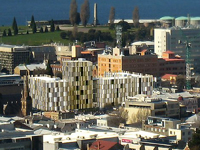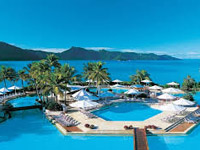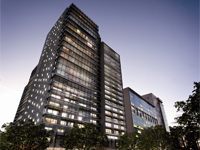
Terrorism threats a possible scenario for highrise
The G20 Summit is merely a month away and many bodies corporate in Brisbane are feeling the nervous vibes in town.
From experience, we have learnt that major political gatherings traditionally attract protesters and are being assessed as high risk by the police. The G20 is no different for us body corporate managers with the key concerns being the safety of our clients, the residents in high rise, but unfortunately also the repercussions of any incidents.
Though we know that Australian police are taking the G20 Summit very seriously, there is a real chance of incidents involving high rise. What we wanted to know at Strata Community Australia was what would happen if any terroristic act would be committed and how to prevent it from happening.
In the first instance, bodies corporate should of course, if they haven’t done so already, implement safety features. If you think of Brisbane Riverfire this month, there are plenty of buildings that have security measures in place to keep strangers from entering buildings. Many schemes have introduced coded swipe cards or keys that enable residents to access their floors but keep strangers out of the building. A similar measure can be introduced to protect a building from a potential G20 terrorism incident. In fact, buildings with common areas such as rooftop terraces, BBQ, pool areas etc that overlook restricted areas are strongly advised to lockdown these areas now, as prohibited items could be planted now without resident and managers knowledge and then activated during G20.
There is some help for affected bodies corporate in the city that police will offer. Between the 14 – 17 of November police will have the authority to ask any person within the declared area to remove head dress, empty pockets and search bags for prohibited items. Prohibited Items include balloons and eggs and good reason for having these items on your person must be shown. Vehicle permits for those residents close to restricted areas may be introduced. Residents may not be able to move furniture in and out of buildings near restricted areas for one week prior to and during G20.
If the worst case was to occur, SCA (Qld) was made aware that many bodies corporate would possibly be in serious trouble. Sufficient insurance coverage is the issue. Bodies corporate within the G20’s restricted and declared zones should have a close look at the detail of their current insurance provisions, we have been advised. As a showcase event for Brisbane and Australia and especially in the current climate of military action around the world, unfortunately we have to consider the risk that the G20 summit might attract protesters or an act of terrorism. While extremely unlikely, a terrorist attack is possible and can cause an extraordinary amount of damage.
For bodies corporate insured under a strata insurance policy issued by one of the major strata insurers, there is generally no exclusion for damage or loss arising from malicious damage such as may occur in the event of a protest getting out of hand. However, due to the scale of the potential losses involved in a terrorist attack, various strata insurers of residential properties have introduced specific terrorism exclusions into their policies.
Our insurance partners have advised that since around 2007, limited cover has been available for residential strata schemes and insurers generally have modified their exclusions to offer limited forms of protection. Typically, the limited cover available from the major strata insurers will apply where the building sum insured is equal to or less than $50,000,000.
No matter what action a body corporate decides to take in regards to terrorism or other property damage precautions, it is vital that they are aware of what their insurance does and does not cover.
Residential and commercial lot owners should also check their level of cover under their home and contents, landlord and business insurance as they also have specific terrorism exclusions.
If not for the G20, the Commonwealth Games will be very similarly high risk.
For buildings deemed to be commercial, the federal government provides terrorism cover under a scheme provided by the Australian Reinsurance Pool Corporation. I urge residents of strata schemes to check with their manager what type of insurance is in place and if insufficient consider covering the building adequately.
NOTE: This editorial does not constitute or substitute legal advice.






